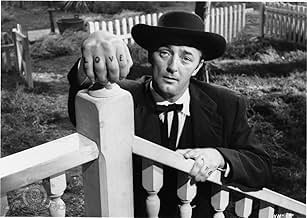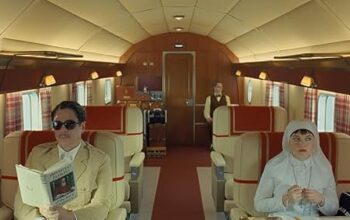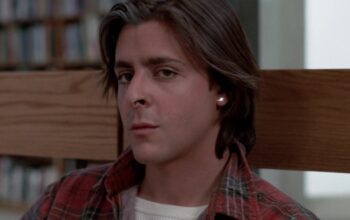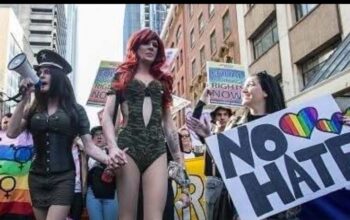The Night of the Hunter (1955) dir. Charles Laughton
“Ah, little lad, you’re staring at my fingers. Would you like me to tell you the little story of right-hand/left-hand? The story of good and evil?”
Charles Laughton’s 1955 expressionistic masterpiece has, since its initial release, defied the typical categorisation attributed to films from critics and general audiences alike. It’s not an easy movie to approach, by any means, although one could be deceived into believing it simple. Laughton famously described his sole directorial effort as a ‘nightmarish mother goose tale’, which is apt but only hints at the deeply sinister undertones that propel the film to its ultimate conclusion. This is a flawless work of art top to bottom, from the lead performances to the lighting and the set design, no aspect of The Night of the Hunter is to be overlooked or discounted as an accident. Everything in the frame is deliberate and every frame is stunning.
For a film largely grounded in some form of reality, it opens in a startlingly fantastic manner, a decision no doubt made to heighten its southern gothic fable nature. From that wonderous introduction, the audience is thrown into the harsh, cruel world of the depression in the deep south. Preacher Harry Powell (Robert Mitchum) prowls the countryside, spreading the word of a lord who he, himself, has a special agreement with. Powell is a deeply troubled man and a serial killer who has left a trail of desperate widows in the wake of his self-righteous quest to rid the world of vice. While Powell searches for his next target family man, Ben Harper (Peter Graves) has become fed up with seeing the effect the depression has had on the poorest people in the town and he robs a bank. He rushes home with the police on his tail and hides $10,000, his two children are the only witnesses to the hiding place. Powell catches wind of the hidden money and with Harper hanged for his crime, sets out to strike it rich in the hills of West Virginia. This is a wonderful movie where every scene is less predictable than the next and even from my long-winded description you have no idea as to the depths to which Laughton and co. will take this story.
Robert Mitchum is one of the stars of yesteryear who has unfortunately been largely forgotten by the general public. He’s easily one of the greatest performers of the twentieth century. His performance in The Night of the Hunter only serves to prove that fact. Preacher Harry Powell is an antagonist never to be forgotten, the embodiment of evil itself in the form of one who should provide nothing but compassion and love makes for a beautiful juxtaposition and acts as a core conflict of the movie. The way Mitchum pitches his voice in his delivery and his massive stature in the frame make this a performance that should be studied by anyone trying to act the villain. While Mitchum is a totally imposing force in the movie he does not outshine the performances from the other leads, or even those brilliant supporting acts. Shelley Winters as Willa Harper, the widow left behind by Ben, performs her role subtly, it is not a bombastic performance neither is it required to be. The way she is taken in by Powell’s manner is believable and her gradual realisation of her predicament is heartbreaking. Key to the success of the film are its true stars Billy Chapin and Sally Jane Bruce as John and Pearl, the Harper children who know where the money is hidden. Chapin’s performance as John is particularly stand-out, holding his own against the far more experienced Mitchum in many scenes. John is the lynchpin holding the entire picture together and a weaker performance would have ended with the movie faltering. Of all the wonderful performances this movie has to offer, however, none comes close to that of Lillian Gish who is the heart of the whole thing. She is kindly and softly spoken and willing to pull out a shotgun at a moment’s notice to protect that which she holds dear. Her character Miss Cooper is the right hand to Harry Powell’s left and she brings a ray of hope into the latter half of the film increasingly darkening with despair.
The direction too, is simply marvellous. It is a true loss to the medium of cinema Charles Laughton never directed another film after The Night of the Hunter initially failed to attract an audience and received poor reviews. Laughton clearly knew what he wanted to do and executed it perfectly. Aiding in that execution is every behind the scenes role on a movie set. The cinematographer (Orson Welles collaborator Stanley Cortez), the editor (Robert Golden), the set designers (Alfred Spencer and Hilyard Brown). All of these work together to create a transcendent cinematic experience. The shadows are blacker than black and the shots at night are the work of envy for the cinematographers of today. All of the houses are slightly off-kilter with sharp angles and are slightly too small for Mitchum’s build making him seem even more a giant to the children. There are a few shots that will make you uncontrollably gasp at their beauty. Once the shock of the quality of the craft on display has passed you will be left wondering ‘how did they do that?’
The Night of the Hunter may be the most terrifying movie I’ve ever seen. Powell’s manipulation of religion and the ease with which he stirs regular people into fervour is a sight to behold. His relentless pursuit of the children is the stuff of nightmares and Miss Cooper’s compassion is the stuff of dreams. There’s a reason The Night of the Hunter has stood the test of time despite initial failure to profit, watch this masterpiece and find out for yourself.




